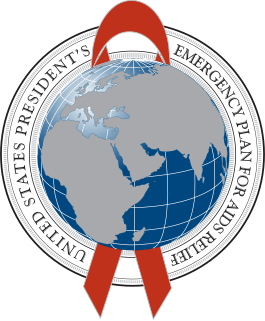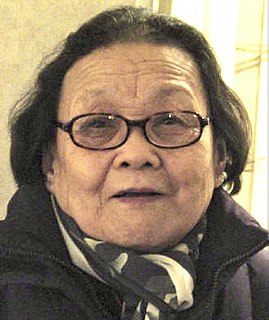
Ryan Wayne White was an American teenager from Kokomo, Indiana, who became a national poster child for HIV/AIDS in the United States after failing to be readmitted to school following a diagnosis of AIDS. As a hemophiliac, he became infected with HIV from a contaminated factor VIII blood treatment and, when diagnosed in December 1984, was given six months to live. Doctors said he posed no risk to other students, as AIDS is not an airborne disease and spreads solely through bodily fluids, but AIDS was poorly understood by the general public at the time. When White tried to return to school, many parents and teachers in Howard County rallied against his attendance due to concerns of the disease spreading through bodily fluid transfer. A lengthy administrative appeal process ensued, and news of the conflict turned Ryan into a popular celebrity and advocate for AIDS research and public education. Surprising his doctors, Ryan White lived five years longer than predicted. He died on April 8, 1990, one month before his high school graduation.

The United Nations Population FundUNFPA, formerly the United Nations Fund for Population Activities, is a UN agency aimed at improving reproductive and maternal health worldwide. Its work includes developing national healthcare strategies and protocols, increasing access to birth control, and leading campaigns against child marriage, gender-based violence, obstetric fistula, and female genital mutilation.

World AIDS Day, designated on 1 December every year since 1988, is an international day dedicated to raising awareness of the AIDS pandemic caused by the spread of HIV infection and mourning those who have died of the disease. The acquired immunodeficiency syndrome (AIDS) is a life-threatening condition caused by the human immunodeficiency virus (HIV). The HIV virus attacks the immune system of the patient and reduces its resistance to other 'diseases'. Government and health officials, non-governmental organizations, and individuals around the world observe the day, often with education on AIDS prevention and control.
The Mexico City policy, sometimes referred to by its critics as the global gag rule, is a United States government policy that blocked U.S. federal funding for non-governmental organizations (NGOs) that provided abortion counseling or referrals, advocated to decriminalize abortion, or expanded abortion services. When in effect, the Mexico City policy is a U.S. government policy that requires foreign non-governmental organizations to certify that they will not "perform or actively promote abortion as a method of family planning" with non-U.S. funds as a condition for receiving U.S. global family planning assistance and, as of January 23, 2017, any other U.S. global health assistance, including U.S. global HIV and maternal and child health (MCH) assistance.

The United States President's Emergency Plan For AIDS Relief (PEPFAR) is a United States governmental initiative to address the global HIV/AIDS epidemic and help save the lives of those suffering from the disease. Launched by U.S. President George W. Bush in 2003, as of May 2020, PEPFAR has provided about $90 billion in cumulative funding for HIV/AIDS treatment, prevention, and research since its inception, making it the largest global health program focused on a single disease in history until the COVID-19 pandemic. PEPFAR is implemented by a combination of U.S. government agencies in over 50 countries and overseen by the Global AIDS Coordinator at the U.S. Department of State. As of 2021, PEPFAR has saved over 20 million lives, primarily in Sub-Saharan Africa.

Barbara Pierce Bush Coyne is an American activist. She co-founded and is the chair of the board of the nonprofit organization Global Health Corps. She and her fraternal twin sister, Jenna, are the daughters of the 43rd U.S. President George W. Bush and former First Lady Laura Bush. She is also a granddaughter of former President George H. W. Bush and Barbara Bush, after whom she is named.
Blood: Water Mission is a grassroots organization that empowers communities to work together against the HIV/AIDS and water crises in Africa.
Abstinence, be faithful, use a condom, also known as the ABC strategy or abstinence-plus sex education, also known as abstinence-based sex education, is a sex education policy based on a combination of "risk avoidance" and harm reduction which modifies the approach of abstinence-only sex education by including education about the value of partner reduction safe sex and birth control methods. Abstinence-only sex education is strictly to promote the sexual abstinence until marriage, and does not teach about safe sex or contraceptives. The abstinence-based sex education program is meant to stress abstinence and include information on safe sex practices. In general terms, this strategy of sex education is a compromise between abstinence-only education and comprehensive sex education. The ABC approach was developed in response to the growing epidemic of HIV/AIDS in Africa, and to prevent the spread of other sexually transmitted diseases. This approach has been credited by some with the falling numbers of those infected with AIDS in Uganda, Kenya and Zimbabwe, among others. From 1990 to 2001 the percentage of Ugandans living with AIDS fell from 15% to between 5 and 6%. This fall is believed to result from the employment of the ABC approach, especially reduction in the number of sex partners, called "Zero-Grazing" in Uganda.

Gao Yaojie is a Chinese gynecologist, academic, and AIDS activist in Zhengzhou, Henan province, China. Gao has been honored for her work by the United Nations and Western organizations, and had spent time under house arrest. Her split with the Chinese authority on the transmission and the seriousness of the AIDS epidemic in China hinders her further activities and resulted in her leaving for the United States in 2009. She is now living alone in uptown Manhattan, New York City.

The Ryan White Comprehensive AIDS Resources Emergency Act, Pub.L. 101–381, 104 Stat. 576, enacted August 18, 1990), was an act of the United States Congress and is the largest federally funded program in the United States for people living with HIV/AIDS. In exchange for States adopting harsh criminal laws regulating the conduct of HIV-positive individuals and providing for their public felony prosecution, the act made federal funding available through contingency grants to states for low-income, uninsured, and under-insured people to be treated with the chemotherapeutic drug AZT. The act is named in honor of Ryan White, an Indiana teenager who contracted AIDS through a tainted blood transfusion. He was diagnosed with AIDS in 1984 at age 13 and was subsequently expelled from school because of the disease. White became a well-known advocate for AIDS research and awareness until his death in 1990 at age 18.
The very high rate of HIV infection experienced in Uganda during the 1980s and early 1990s created an urgent need for people to know their HIV status. The only option available to them was offered by the National Blood Transfusion Service, which carries out routine HIV tests on all the blood that is donated for transfusion purposes. The great need for testing and counseling resulted in a group of local non-governmental organizations such as The AIDS Support Organisation (TASO), Uganda Red Cross, Nsambya Home Care, the National Blood Bank, the Uganda Virus Research Institute together with the Ministry of Health establishing the AIDS Information Centre in 1990. This organization worked to provide HIV testing and counseling services with the knowledge and consent of the client involved.

Mozambique is a country particularly hard-hit by the HIV/AIDS epidemic. According to 2008 UNAIDS estimates, this southeast African nation has the 8th highest HIV rate in the world. With 1,600,000 Mozambicans living with HIV, 990,000 of which are women and children, Mozambique's government realizes that much work must be done to eradicate this infectious disease. To reduce HIV/AIDS within the country, Mozambique has partnered with numerous global organizations to provide its citizens with augmented access to antiretroviral therapy and prevention techniques, such as condom use. A surge toward the treatment and prevention of HIV/AIDS in women and children has additionally aided in Mozambique's aim to fulfill its Millennium Development Goals (MDGs). Nevertheless, HIV/AIDS has made a drastic impact on Mozambique; individual risk behaviors are still greatly influenced by social norms, and much still needs to be done to address the epidemic and provide care and treatment to those in need.
Cases of HIV/AIDS in Peru are considered to have reached the level of a concentrated epidemic. According to a population-based survey conducted in Peru’s 24 largest cities in 2002, adult HIV prevalence was estimated to be less than 1 percent. The survey demonstrated that cases are unevenly distributed in the country, affecting mostly young people between the ages of 25 and 34. As of July 2010, the cumulative reported number of persons infected with HIV was 41,638, and there were 26,566 cases of AIDS, according to the Ministry of Health (MOH), and the male/female ratio for AIDS diagnoses in 2009 was 3.02 to 1. The Joint United Nations Program on HIV/AIDS (UNAIDS) estimates 76,000 Peruvians are HIV-positive, meaning that many people at risk do not know their status. There were 3,300 deaths due to AIDS in Peru in 2007, down from 5,600 deaths in 2005.

Jenna Bush Hager is an American news personality, author, and journalist. She is currently the co-host of Today with Hoda & Jenna, the fourth hour of NBC's morning news program Today. Hager and her twin sister, Barbara, are the daughters of the 43rd U.S. President George W. Bush and former First Lady Laura Bush. After her father's presidency, Hager became an author, an editor-at-large for Southern Living magazine, and a television personality on NBC, being featured most prominently as a member of The Today Show as a correspondent, contributor and co-host.

UNICEF, also known as the United Nations Children's Fund, is a United Nations agency responsible for providing humanitarian and developmental aid to children worldwide. The agency is among the most widespread and recognizable social welfare organizations in the world, with a presence in 192 countries and territories. UNICEF's activities include providing immunizations and disease prevention, administering treatment for children and mothers with HIV, enhancing childhood and maternal nutrition, improving sanitation, promoting education, and providing emergency relief in response to disasters.
Mary Fisher is an American political activist, artist and author. After contracting HIV from her second husband, she has become an outspoken HIV/AIDS-activist for the prevention, education and for the compassionate treatment of people with HIV and AIDS. She is particularly noted for speeches before two Republican Conventions: Houston in 1992 and San Diego in 1996. The 1992 speech has been hailed as “one of the best American speeches of the 20th Century”.
Botswana's healthcare system has been steadily improving and expanding its infrastructure to become more accessible. The country's position as an upper middle-income country has allowed them to make strides in universal healthcare access for much of Botswana's population. The majority of the Botswana's 2.3 million inhabitants now live within five kilometers of a healthcare facility. As a result, the infant mortality and maternal mortality rates have been on a steady decline. The country's improving healthcare infrastructure has also been reflected in an increase of the average life expectancy from birth, with nearly all births occurring in healthcare facilities.

Jeannette Nyiramongi Kagame is the wife of Paul Kagame. She became the First Lady of Rwanda when her husband took office as President in 2000. The couple have four children - Ivan, Ange, Ian and Brian. Kagame is the Founder and Chairman of Imbuto Foundation, a non-profit organization whose mission is to support the development of a healthy, educated and prosperous society. Founder of imbuto foundation Activism

Deborah Leah Birx is an American physician and diplomat who served as the White House Coronavirus Response Coordinator under President Donald Trump from 2020 to 2021. Birx specializes in HIV/AIDS immunology, vaccine research, and global health. Starting in 2014, she oversaw the implementation of the President's Emergency Plan for AIDS Relief (PEPFAR) program to support HIV/AIDS treatment and prevention programs in 65 countries. From 2014-2020, Birx was the United States global AIDS coordinator for presidents Barack Obama and Donald Trump and served as the United States special representative for global health diplomacy between 2015 and 2021. Birx was part of the White House Coronavirus Task Force from February 2020 to January 2021. In March 2021, Dr. Birx joined ActivePure Technology as Chief Medical and Science Advisor.
Karithi Ruth Wanjiru Nduati is a Kenyan Pediatrician and Epidemiologist who also teaches at the University of Nairobi College of Health Sciences. She is also currently leading an interdisciplinary program through the University of Nairobi School of Medicine to educate physician-researchers to best implement HIV treatment and prevention methods backed by research. The program was funded by the Fogarty Training Grant which is a part of the PEPFAR funds the country of Kenya received.











